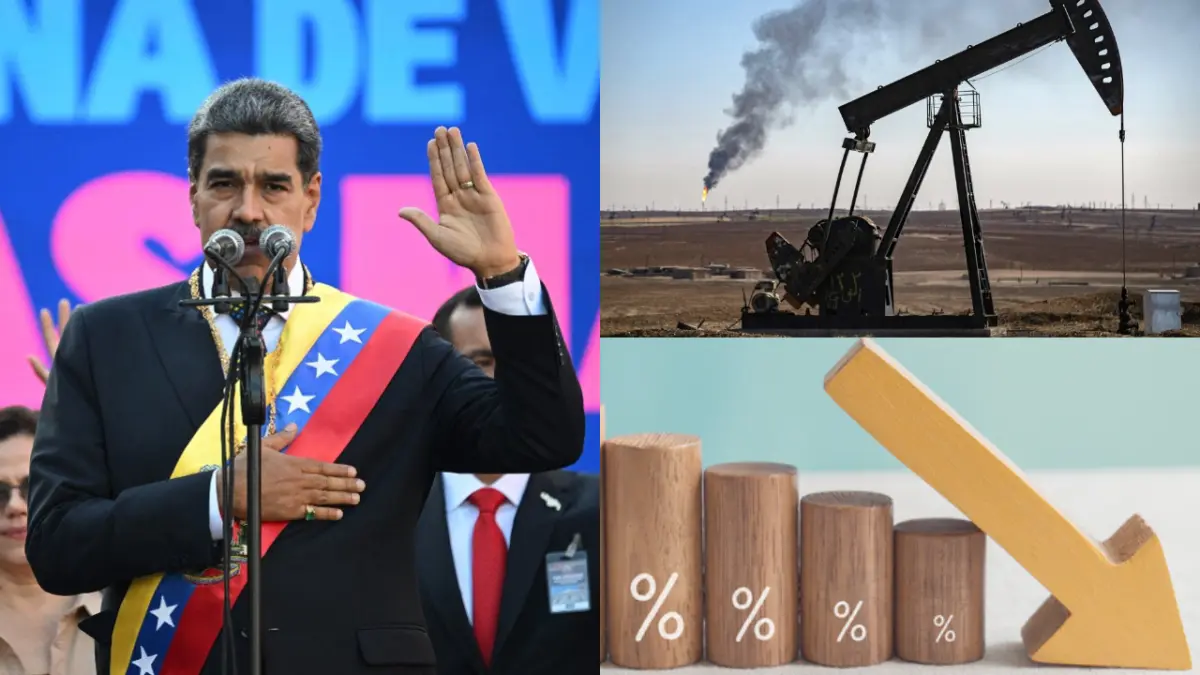
There has been a considerable decline in Venezuela’s economy since Hugo Chavez He came to power in 1998. After his death in 2013, Nicolás Maduro assumed power and this nation has experienced an unprecedented recession.
It must be emphasized that it is difficult to access official and credible information on the economic indicators of the neighboring country, which is why Noticias Caracol turned to other sources such as the Inter-American Development Bank (IDB), the International Monetary Fund (IMF) and Fedesarrollo.
(Also read: Edmundo González to institutions and military of Venezuela: “They must ignore the illegitimate regime”
)
Inflation in the Venezuelan economy
In 1998, inflation in Venezuela’s economy stood at 29.9%, by 2018 it increased to 130,000% and by 2024 it dropped to 85%.
On this topic, Luis Fernando Mejía, director of Fedesarrollo, was consulted, who assures that the worst of hyperinflation in Venezuela has already passed because the market was de facto dollarized and that has allowed inflation to be controlled: “Where does this come from? hyperinflation process in the neighboring country? Basically the problem of the fall in economic activity, which exceeded 75% in a period of seven years, and the problems associated with the fiscal deficit, the fall in investment, economic growth (which generated problems in tax collection for Venezuela ), very significant falls in public and private investment, and therefore problems on the fiscal front.”
Venezuela’s red numbers
In line with the previous explanation, how has the wealth that, on average, each inhabitant of Venezuela generates stagnated? By 1998, it stood at $3,970 dollars, in 2013, it rose to $8,692 dollars and, in 2024, at $3,867 dollars, which demonstrates the stagnation of citizens.
Regarding the unemployment in Venezuelafor 1998 it was 11.3%, for 2013 (with the arrival of Nicolás Maduro) it dropped to 8.1%, and by 2023, it rose to 40.3%.
Regarding oil production, the drop is significant, even more so when Venezuela is the country with the largest oil reserves in the world. In 1998 it was positioned at 3.3 million barrels per day and in 2024, this figure dropped to 928,000.
He bilateral trade between Colombia and Venezuela has also fluctuated. By 1998, it stood at $3.1 billion dollars, in 2008 it reached its best year when it reached $7.2 billion dollars, and by 2024 there was a collapse to $997 million dollars.
He minimum wage in Venezuela has dropped indisputably. By 1998, this was $337, and by 2025, it dropped to $2.5.
On this topic, Noticias Caracol spoke with a Venezuelan woman who states that in order to meet the basic needs of their homes they must have between two and three jobs, and work more than 15 hours a day. This is the case of Marilyn Dávila, a teacher in Mérida. “It really isn’t enough for absolutely anything, Venezuelans have to migrate, they have to rely on other activities to be able to have enough income to basically eat. What can 130 bolivars get you to supply your basic food basket? They give a bonus that they do not give to everyone, but only the public employee receives it,” he said.
How much has the bolivar fallen?
The Venezuelan government has eliminated 14 zeros from the bolívar in three monetary reconversion processes, so it is difficult to calculate the devaluation in these 26 years. At the moment, 1 dollar is equivalent to 53.10 bolivars. In 2024, the devaluation was 30.9%.
All of these indicators show the exponential decline in the economy that has led to the fact that today nearly 50% of the Venezuelan population lives in conditions of poverty and is far from getting out of there due to the uncertainty that today, once again, is generated by Nicolás Maduro. stay in power.
(Also read: Edmundo González to institutions and military of Venezuela: “They must ignore the illegitimate regime”
)
Source: https://www.noticiascaracol.com/mundo/asi-ha-sido-el-deterioro-de-la-economia-en-venezuela-durante-los-ultimos-26-anos-rg10


